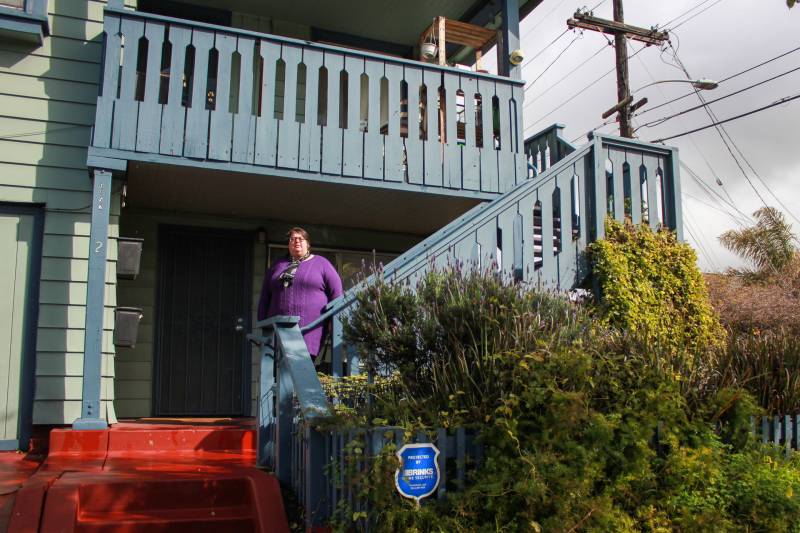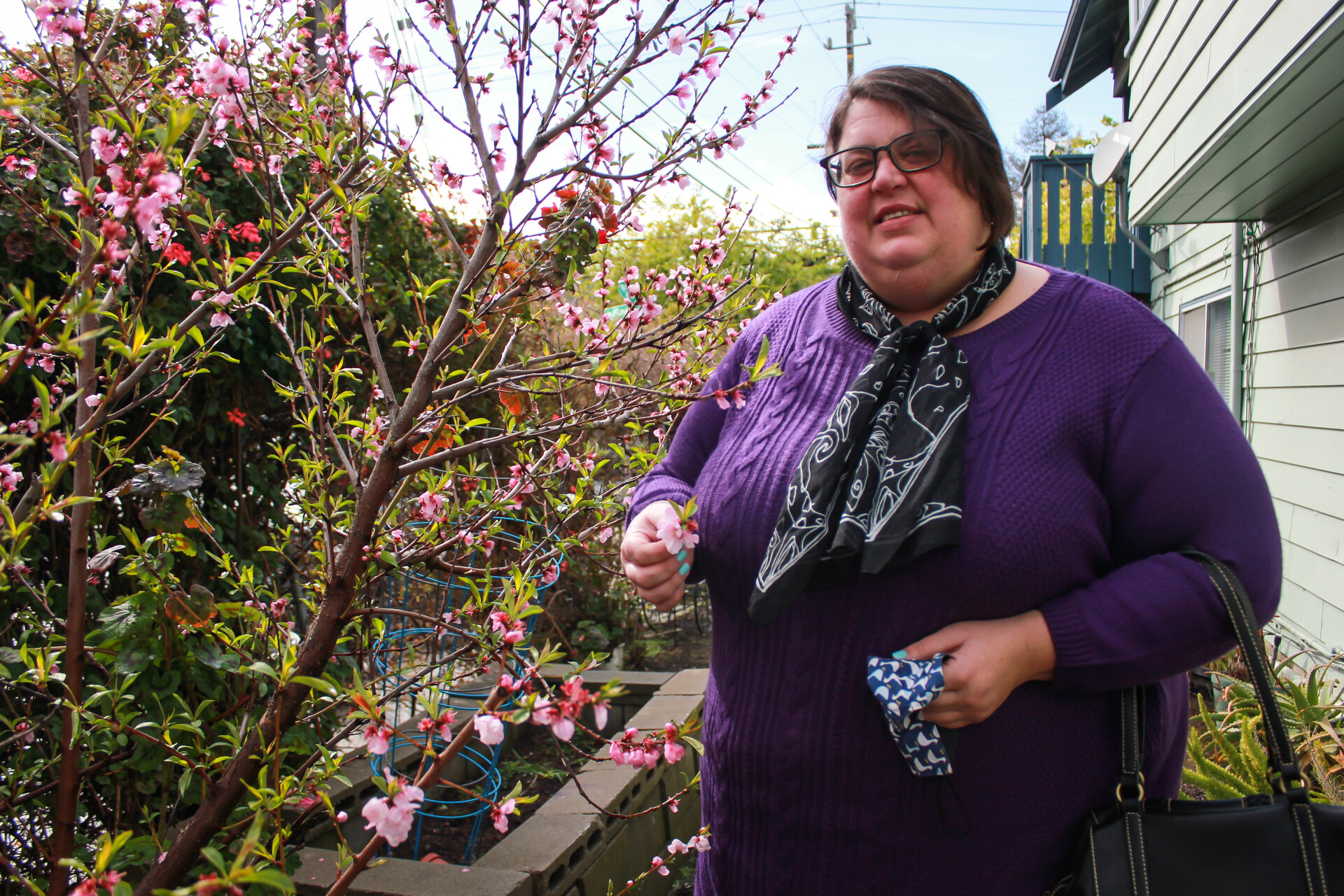Way also hoped the land trust could make repairs to the old building — the kind she said owners only interested in maximizing the return on their investment often defer.
The building was listed at $1.1 million, Way said, but it needed a number of repairs. So, the trust put in a bid for $925,000.
“Nonprofits move a little slower, but I mean, we still came in with a great offer,” she said.
Way said they were beat out without having a chance to counter the highest bid. But she was so determined to stay anyway, even under the new owner, that she turned down a $35,000 buyout.
“The market felt really crazy and intimidating,” said Way.
Ultimately, she found life under the new owner, Rony Joseph, stressful. She was paying less than market rate and felt he wanted her out — something he disputes. He admits turning one unit into an Airbnb for months until the city forced him to stop. Way said it all became too much; about a year ago, she left for Walnut Creek, doubling her daily commute to San Francisco.
Meanwhile, Joseph has already put the Oakland house back up for sale. His family owns and operates about 60 housing units in Concord, and he said he grew weary of managing improvements and tenants in an entirely new location.
“I think we have maybe $100,000 in profit after we walk away from this,” Joseph said of the anticipated sale. “But it’s nothing outlandish.”
Both landlords, Vaughn and Joseph, said they have no problem with the spirit of the new bill.
“I think I would be pretty supportive of local residents wanting to keep their house and keep their neighborhood and be there,” Joseph said. “I think that’s a very positive thing.”
But he cautioned that the devil is in the details.
The bill would give tenants a month to make a first offer, and between one and four months to secure financing, depending on the size of the building. The landlord can reject the offer in favor of a better one, but a renter or qualified nonprofit would have 10 days to match it.
Joseph said that months-long waits might be OK for most sellers, but harder for those trying to do a simultaneous purchase, known as an exchange.
“The only thing is,” Joseph said, “I would need to know that they would be able to perform in the set amount of time.”
The bill is expected to get its first hearing later this month.


